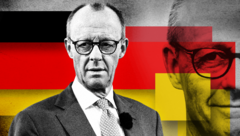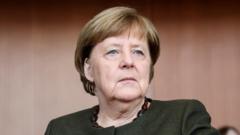Horst Köhler, who served as Germany's president and previously held a significant position at the IMF, has passed away, leaving a legacy of economic reform advocacy and an aim for a confident German presence on the global stage.
Horst Köhler: The Influential Former German President and IMF Leader Passes Away at 81

Horst Köhler: The Influential Former German President and IMF Leader Passes Away at 81
Horst Köhler, prominent for his role in German reunification and as a global financial leader, has died after a short illness in Berlin.
Horst Köhler, former president of Germany and managing director of the International Monetary Fund, died on Saturday at the age of 81 in Berlin. His passing was confirmed through a statement by the German president’s office, issued on behalf of his family, noting it followed a brief illness.
Before assuming the presidency in 2004, Köhler was not a particularly well-known figure in German politics. However, he quickly gained recognition during his nearly six-year term alongside Chancellor Angela Merkel. His vision for Germany was rooted in transforming the nation into “a land of ideas,” focusing on both domestic economic reforms and a proactive stance on the global stage. In his May 2004 acceptance speech, he emphasized the necessity for Germany to "fight for its place in the 21st century.”
While his presidency was marked by a rise in popularity, Köhler did not shy away from tackling contentious issues. He challenged the political status quo by raising questions about the longstanding economic disparities between East and West Germany, a move that broke taboos and stirred political discussion within the country.
His tenure as president, which followed his influential role at the IMF where he crafted policies that contributed to the reunification of Germany and the Eurozone, also saw him grapple with the complexities of German identity and economy. Despite facing challenges and public scrutiny, his leadership style and advocacy for economic transformation left a significant imprint on both German society and the international financial landscape.
Köhler's legacy persists in the dialogues surrounding Germany’s role in the world and the domestic reforms he envisioned. His contributions to the political discourse surrounding economic equality and a stronger global presence for Germany are expected to continue influencing conversations in the years to come.




















